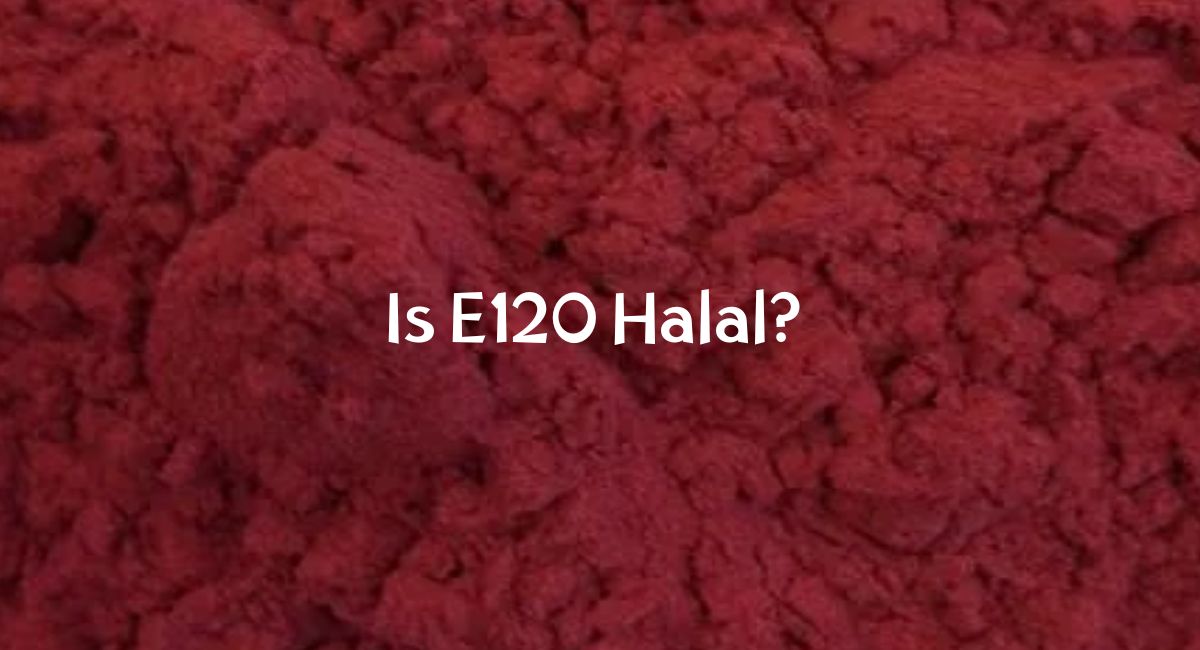Are you wondering if the food additive E120 is halal or not? If so, then you’ve come to the right place! In this blog post, we will explore the question of is E120 halal and provide an answer that explains why it may or may not be acceptable in certain contexts. We will also discuss what ingredients are used to make E120, why it is important to consider the source of ingredients when determining halal status, and more. So read on to learn all about E120 and its potential implications for those who follow a halal diet.
About E120
E120, also known as cochineal or carmine, is a common food colouring used in many products. It is made from the dried bodies of insects called Dactylopius coccus, which is found in Central and South America. The insects feed on cactus plants and their bodies contain a red pigment that can be used for food and cosmetics a bright, red hue. The pigment is extracted from the insects by boiling them in water or by using a series of chemical treatments.
The use of E120 as an ingredient has raised debates about its halal status due to the extraction process involving non-halal sources such as insects and chemicals. Islamic scholars have debated on whether the E120 extracted from insects is still halal, as it contains no non-halal ingredients.
Some scholars argue that since the insect used to produce E120 is not considered, and because the extraction does not involve any non-halal elements, it should be permissible. Other scholars disagree, arguing that since the whole process of extraction begins with an insect, which is not halal, then the product itself cannot be considered to be halal.
Ultimately, it is up to Muslim consumers to make their own choice when purchasing products that contain E120. Ultimately, those who wish to avoid consuming anything related to non-halal sources are advised to avoid products that contain E120.
However, it is important to note that most food colourings do not contain animal-derived ingredients and are considered vegetarian and vegan-friendly. Therefore, there are other options available if you wish to avoid using E120 in your cooking or baking. Ultimately, the choice of whether or not to consume E120 should be based on your personal beliefs and preferences.
In conclusion, there is still a debate about whether or not E120 is halal. Ultimately, it is up to the individual Muslim consumer to make their own judgement when considering products containing E120. For those who wish to avoid animal-derived ingredients, there are other vegetarian and vegan-friendly options available.
What Is E120 Made From?
E120 is a natural food colouring obtained from the carminic acid found in certain female scale insects. The dye, which can vary in colour from bright red to dark purple, is used to add a reddish or purplish hue to many products. In the Muslim tradition, halal refers to what is considered permissible for consumption under Islamic dietary laws, and E120 is considered to be a halal food colourant.
The insects used to produce carminic acid are known as cochineal or Dactylopius coccus Costa, and they feed on the cactus plant in the wild. The female shells of these insects secrete carminic acid, which is then extracted from the insects and purified to make E120.
E120 is approved by both the FDA in the US and EFSA (European Food Safety Authority) for use as a food colouring. It is also widely used in many countries around the world. The EU requires that it be labelled on any product containing it so that consumers are aware of its presence.
E120 is widely used in a variety of food products, such as ice cream, yoghurt, candy, baked goods and many other products where colour is important. It can also be found in cosmetics, medications and even textiles. The use of E120 helps to ensure the quality and longevity of these products.
In conclusion, E120 is a natural food colouring obtained from the carminic acid found in certain female scale insects. It is widely used around the world and approved by both the FDA and EFSA for use as a food colourant. In addition to being used in products a, variety of good food as items added, a unique colour that can also be found in can be used to differentiate products. It is also considered to be a halal food colourant by the Muslim tradition, making it suitable for many religious dietary restrictions.
So Is E120 Halal Or Haram? Final Take
In conclusion, the debate over whether or not E120 is halal or haram is ongoing. While some authorities have declared that it is permissible, others have taken a more cautious stance and consider it to be unlawful. Ultimately, Muslims should seek guidance from qualified scholars to determine their own views on this matter. As with all things, one should strive to find the best solution that honours their faith and ensures they remain on the path of righteousness.
E120 is an incredibly complex issue that requires further research and consideration before making a firm decision about its use. Ultimately, individuals must make their own individual choices about what is acceptable or unacceptable according to their own beliefs and practices.






